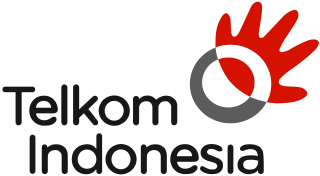The European Conference of Postal and Telecommunications Administrations (CEPT) was established on June 26, 1959, as a coordinating body for European state telecommunications and postal organizations. The acronym comes from the French version of its name Conférence européenne des administrations des postes et des télécommunications.

The International Telecommunication Union, originally the International Telegraph Union, is a specialized agency of the United Nations (UN) that is responsible for issues that concern information and communication technologies. It is the oldest among all the 15 specialised agencies of UN.
Telecommunications in Pakistan describes the overall environment for the growing mobile telecommunications, telephone, and Internet markets in Pakistan.
This article covers telecommunications in Sweden.
Federal Standard 1037C, titled Telecommunications: Glossary of Telecommunication Terms, is a United States Federal Standard issued by the General Services Administration pursuant to the Federal Property and Administrative Services Act of 1949, as amended.

The Telecommunications policy in the US is a framework of law directed by government and the Regulatory Commissions, most notably the Federal Communications Commission. Two landmark acts prevail today, the Communications Act of 1934 and the Telecommunications Act of 1996. The latter was intended to revise the first act and specifically to foster competition in the telecommunications industry.

PT Telekomunikasi Indonesia (Persero) Tbk, commonly known as Telkom Indonesia or simply Telkom, is an Indonesian multinational telecommunications conglomerate. Telkom is a semi-privatised, majority state-owned company listed on multiple exchanges.

Kosovo Telecom, formerly known as Post and Telecommunications of Kosovo is the postal and telecommunications authority of Kosovo. It was created in 1959, originally under the name of The Post, Telephone and Telegraph of Kosovo.
National Cable & Telecommunications Association v. Brand X Internet Services, 545 U.S. 967 (2005), is a United States Supreme Court case in which the Court declared in a 6–3 decision that the administrative law principle of Chevron deference to statutory interpretations by administrative agencies tasked with executing the statute trumped the precedents of the United States Courts of Appeals unless the Court of Appeals had held that the statute was "unambiguous" under Chevron. The Supreme Court therefore upheld the Federal Communications Commission's determination that a cable Internet provider is an "information service", and not a "telecommunications service" and as such competing internet service providers (ISPs) like Brand X Internet were denied access to the cable and phone wires to provide home users with competing internet service.

The Federal Network Agency is the German regulatory office for electricity, gas, telecommunications, post and railway markets. It is a federal government agency of the German Federal Ministry of Economics and Technology and headquartered in Bonn, Germany.

Regulation of the telephone numbers in Serbia is under the responsibility of the Regulatory Agency of Electronic Communication and Mail Services (RATEL), independent from the government. The country calling code of Serbia is +381. The country has an open telephone numbering plan, with most numbers consisting of a 2- or 3-digit calling code and a 6-7 digits of customer number.

Spectrum management is the process of regulating the use of radio frequencies to promote efficient use and gain a net social benefit. The term radio spectrum typically refers to the full frequency range from 3 kHz to 300 GHz that may be used for wireless communication. Increasing demand for services such as mobile telephones and many others has required changes in the philosophy of spectrum management. Demand for wireless broadband has soared due to technological innovation, such as 3G and 4G mobile services, and the rapid expansion of wireless internet services.
Ethio telecom, previously known as the Ethiopian Telecommunications Corporation (ETC), is an integrated telecommunications services provider in Ethiopia, providing internet and telephone services. Ethio telecom is owned by the Ethiopian government and maintains a monopoly over all telecommunication services in Ethiopia. Based in Addis Ababa, it is one of the "Big-5" group of state owned corporations in Ethiopia, along with Ethiopian Airlines, the Commercial Bank of Ethiopia, Ethio-Insurance, and the Ethiopian Shipping Lines.
Telecommunications in Montenegro includes radio, television, fixed and mobile telephones, and the Internet.

The Public Utility Commission of Texas (PUC) is a state agency that regulates the state’s electric, water and telecommunication utilities, implements respective legislation, and offers customer assistance in resolving consumer complaints.
Telecommunications in Bosnia and Herzegovina include radio, television, fixed and mobile telephones, and the Internet.

The dialing code for Kosovo is +383. Assigned to Kosovo by ITU with the agreement of the Administration of the Republic of Serbia after the reached agreement in the EU led dialog between Pristina and Belgrade. Its dialing code was initially expected to become effective on January 1, 2015 but it was postponed to the finalization of the agreement in late August 2015. With the agreement of the Administration of the Republic of Serbia, the Director of TSB has assigned the international codes to Kosovo. Kosovo is represented in ITU as Kosovo* which the designation is without prejudice to positions on status, and is in line with UNSCR 1244 and the ICJ Opinion on the Kosovo declaration of independence. Also the EU handed over to mts d.o.o., the temporary authorisation for mobile and the licence for fixed telephony services to be undertaken in Kosovo issued by the Kosovo Telecommunication Regulatory Authority.










